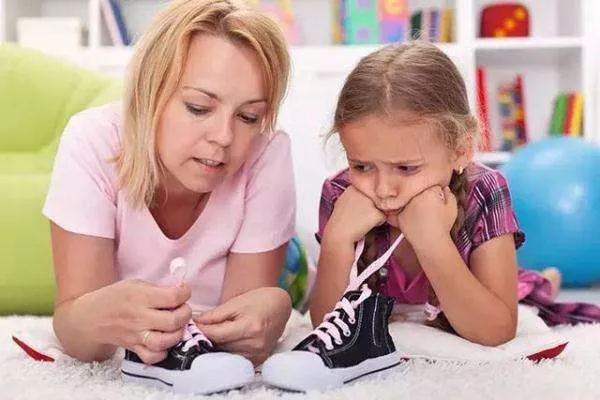Love is an intricate and powerful emotion that can profoundly affect our thoughts, behaviors, and overall well-being. While love is often discussed in terms of emotions, relationships, and social dynamics, there are also significant biological and neurological components that influence how we experience and express love. These components include the release of certain hormones and neurotransmitters that play key roles in the development of romantic feelings, attachment, and bonding.
In this article, we will explore the five key hormones that contribute to the experience of love. These hormones—dopamine, oxytocin, serotonin, vasopressin, and endorphins—are often referred to as the “hormones of love” because of their critical role in regulating emotions, creating emotional bonds, and fostering feelings of attraction and intimacy. By understanding how these hormones work, we can gain a deeper insight into the biological mechanisms behind love and how they shape our relationships.
1. Dopamine: The “Feel-Good” Hormone
Dopamine is often called the “feel-good” neurotransmitter due to its role in the brain’s reward system. It is associated with pleasure, motivation, and the anticipation of rewards, and it plays a crucial role in the early stages of love, especially during infatuation and attraction.
When we are in the early stages of falling in love, dopamine levels surge, creating feelings of excitement, euphoria, and intense attraction. This chemical response is often referred to as the “rush” of new love. Dopamine is responsible for the pleasurable feelings we get when we interact with someone we’re attracted to, and it motivates us to seek more of those interactions.
The Role of Dopamine in Love:
Motivation: Dopamine fuels our desire to pursue romantic relationships. The anticipation of spending time with someone we love, or even thinking about them, can increase dopamine levels, motivating us to engage with that person.
Pleasure: The release of dopamine during physical touch, intimate moments, or positive interactions creates a rewarding sensation that reinforces the desire to bond with a partner.
Obsessive Thinking: In the early stages of love, dopamine can sometimes lead to obsessive thoughts about the person we’re infatuated with. This is due to dopamine’s role in seeking out pleasurable experiences.
The dopamine-driven “high” associated with love is part of what makes romantic relationships so exhilarating, especially during the early stages. However, as the relationship matures, dopamine levels tend to stabilize, transitioning the experience from the intense thrill of new love to a deeper, more enduring bond.
2. Oxytocin: The “Bonding” Hormone
Oxytocin is a powerful hormone that plays a central role in social bonding, emotional intimacy, and attachment. Often called the “bonding hormone” or “cuddle hormone,” oxytocin is released during moments of physical touch, including hugging, kissing, and sexual intimacy. It is also released during childbirth and breastfeeding, helping mothers bond with their babies.
In the context of romantic relationships, oxytocin fosters feelings of closeness, trust, and emotional attachment. It is especially important in the later stages of love, where it strengthens the emotional connection between partners and promotes long-term attachment.
The Role of Oxytocin in Love:
Emotional Bonding: Oxytocin helps create a deep emotional connection between romantic partners. It encourages feelings of warmth, affection, and attachment, which are essential for sustaining a loving relationship.
Trust and Security: Oxytocin plays a key role in building trust between partners. It reduces anxiety and promotes feelings of safety and security, which are necessary for healthy, long-term relationships.
Social Bonding: In addition to romantic relationships, oxytocin is also released during social interactions, such as friendship and family bonding. This hormone strengthens all types of social bonds and is fundamental to the human experience of love.
The role of oxytocin in love cannot be overstated. It not only helps facilitate romantic attachment but also plays a part in nurturing other close relationships, including familial bonds and friendships. This hormone is essential for creating lasting emotional connections and fostering intimacy in relationships.
3. Serotonin: The “Mood Stabilizer”
Serotonin is a neurotransmitter that plays a significant role in regulating mood, happiness, and emotional well-being. It is often referred to as the “mood stabilizer” because it helps maintain emotional balance. While serotonin is not directly responsible for the feelings of attraction that we associate with falling in love, it plays a crucial role in maintaining emotional stability in romantic relationships.
When we are in love, serotonin levels can fluctuate. In the early stages of romantic attraction, serotonin levels may be lower, contributing to the obsessive, almost “fixated” feelings we sometimes experience. This lower serotonin level is thought to be why people in the throes of new love can become preoccupied with thoughts of their partner.
Over time, as love deepens and the relationship matures, serotonin levels tend to stabilize, leading to a more balanced emotional state. This stabilization contributes to feelings of contentment and well-being in a long-term, committed relationship.
The Role of Serotonin in Love:
Emotional Regulation: Serotonin helps regulate emotions and maintain a sense of balance in relationships. It helps prevent the emotional highs and lows that can come with the early stages of love.
Bonding and Commitment: As serotonin levels stabilize in long-term relationships, they help create a sense of emotional stability and contentment. This contributes to the longevity and strength of the bond between partners.
Mood Elevation: Serotonin is associated with feelings of happiness and well-being. Higher serotonin levels contribute to feelings of joy and satisfaction in romantic relationships, especially as they progress.
Serotonin’s influence on mood and emotional regulation is crucial for maintaining healthy, stable relationships. It helps ensure that love is not just a fleeting feeling but can evolve into a lasting connection characterized by emotional stability and mutual satisfaction.
4. Vasopressin: The “Commitment” Hormone
Vasopressin is a hormone that is closely related to oxytocin and plays a significant role in the formation of long-term relationships and commitment. Vasopressin is released during moments of physical intimacy and is particularly important in the post-sexual stages of romantic relationships. While oxytocin fosters emotional bonding and trust, vasopressin plays a key role in promoting monogamy and long-term attachment.
Vasopressin is often called the “commitment hormone” because it encourages behaviors that strengthen long-term pair bonding. It is thought to increase attachment and promote feelings of loyalty, making it essential for forming enduring relationships.
The Role of Vasopressin in Love:
Monogamy and Commitment: Vasopressin is involved in encouraging long-term commitment and monogamy. It helps ensure that partners remain emotionally invested in each other over time, strengthening the bond between them.
Emotional Stability: Vasopressin helps maintain a sense of stability in relationships. It fosters a desire to stay with a partner through challenges and difficulties, encouraging long-term attachment.
Protective Behavior: This hormone is also associated with protective behaviors, as it helps individuals feel a sense of responsibility for their partner’s well-being and safety.
Vasopressin is essential for sustaining long-term romantic relationships. It contributes to feelings of loyalty, trust, and commitment, helping couples navigate the challenges of life together.
5. Endorphins: The “Pain Relief” Hormones
Endorphins are natural painkillers produced by the body in response to physical activity, stress, or discomfort. They are often referred to as the body’s “natural opioids” because they promote feelings of euphoria and reduce pain. In the context of love, endorphins play a critical role in enhancing feelings of happiness, relaxation, and well-being.
Endorphins are released during physical intimacy, hugging, kissing, and other forms of affection, creating a sense of calm and happiness. This release of endorphins strengthens the emotional bond between partners and promotes a sense of contentment in the relationship.
The Role of Endorphins in Love:
Pain Relief and Pleasure: Endorphins help alleviate emotional pain and stress, promoting a sense of well-being. They contribute to the pleasurable sensations that come with physical touch and intimacy.
Long-Term Satisfaction: Endorphins are important for creating lasting satisfaction in relationships. The positive feelings they generate enhance emotional bonding and contribute to overall happiness in romantic partnerships.
Stress Reduction: The release of endorphins helps reduce stress and anxiety, creating a sense of calm and relaxation in the presence of a partner.
Endorphins are essential for maintaining the joy and pleasure that comes with being in a loving relationship. Their role in reducing stress and promoting emotional well-being enhances the overall quality of life for couples, fostering a sense of happiness and connection.
Conclusion
Love is a multifaceted experience that involves complex biological and emotional processes. The five hormones of love—dopamine, oxytocin, serotonin, vasopressin, and endorphins—each play a crucial role in shaping the way we experience romantic attraction, bonding, intimacy, and commitment. From the initial “rush” of attraction driven by dopamine to the deep emotional connection fostered by oxytocin and vasopressin, these hormones work in tandem to create the powerful experience of love.
Understanding the role of these hormones can help us appreciate the biological underpinnings of love and provide insight into the emotional dynamics of relationships. By recognizing the intricate balance of hormones involved in love, we can better understand how love evolves over time and what makes it such a unique and transformative experience for humans.
Related topics:




















